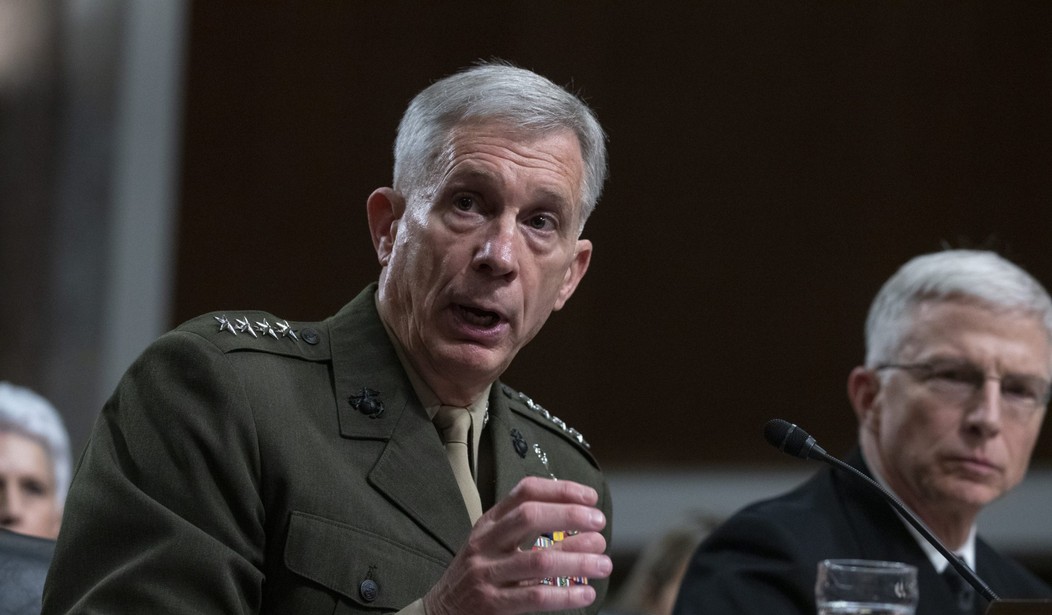WASHINGTON — The top U.S. commander in Africa stressed that “synchronizing our kinetic authorities” is essential to battle extremism on the continent and in turn protect the United States.
Marine Corps Gen. Thomas D. Waldhauser of the United States Africa Command (AFRICOM) told the Senate Armed Services Committee on Thursday that “taken comprehensively the overall U.S. strategic interests in Africa are very clear: prevent the undermining of our alliances toward destabilization of African nations, counter violent extremist organizations, decrease the potential for Africa to become a failed continent, protect U.S. citizens in the homeland and advance American influence including economic opportunities and transactions.”
“Persistent pressure” on terror groups — al-Shabaab, ISIS, al-Qaeda and related groups — “remains necessary to prevent this destabilization of African nations,” he said.
“U.S. strategic interests on the continent cannot be solely advanced through the use of military force alone,” Waldhauser added. “As such AFRICOM utilizes the military tool in concert with diplomacy and development efforts to help negate the drivers of conflict and create opportunity.”
Waldhauser noted that the U.S. is limited on where it can strike terrorists in Africa.
“We can strike in Somalia, we can strike in Libya, but not in Nigeria, Chad and the like. So we don’t have authorities there,” he said. “Now, ISIS West Africa has grown. They go by different names every once in a while, but they have grown in numbers. They’re now in the neighborhood, probably in the neighborhood, of around 3,000 to 4,000. That’s the best estimate that we have.”
“They have been very aggressive over the summer into this year,” the general added. “They now have taken large pieces of real estate in northern Nigeria and, I think, of the two right now, they’re the one that we have the most concern about because we are not sure what their intentions would be with regards to outside the region. Boko Haram probably around a thousand, bottom line … can’t say for sure whether they’ve been designated or not. I know that we don’t strike them.”
U.S. forces in the region work under “the inherent right of self-defense and collective self-defense.”
“If we are not accompanying, which we have not done at all in Nigeria and very — we haven’t accompanied inside other places for quite some time, we do not have collective self-defense because I haven’t designated it and we don’t use it,” Waldhauser said.
Using Niger as an example of a comprehensive approach to the region, Waldhauser emphasized that the country — with a population of about 19 million, and half of those under the age of 15 — is “in a very difficult area of Africa, meaning that they have pressing from all sides, whether it be ISIS West Africa, JNIM in the West, whether it be AQ coming down through the Algeria-Niger border on the way to Mali. They have ISIS West Africa on their eastern flank. So they are in a tough situation.”
“What goes unnoticed sometimes is the whole-of-government approach that is used in Niger,” the AFRICOM commander continued. “So, for example, USAID has about $150 million a year that they use for things like education, especially for young girls, for government and government infrastructure and so forth. Moreover, the Millennium Challenge Corporation has a — they’re on the, I think, the second year of a five-year compact down there which has to do with agriculture, watering crops and so forth.”
“So if you look at the security assistance that we’re providing and you add to that USAID’s effort and the Millennium Challenge compact, that’s, I think, a good example of a whole-of-government approach of how we’re trying to deal with a country that has some very significant security challenges.”









Join the conversation as a VIP Member